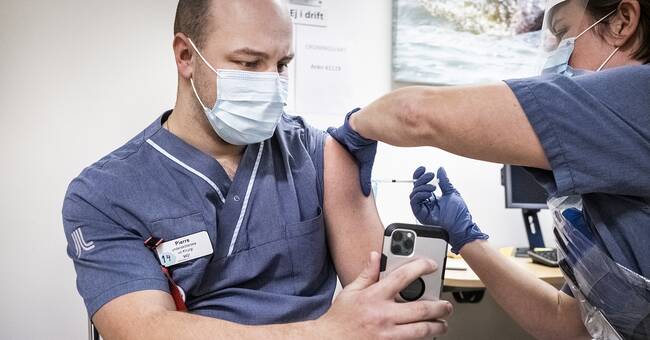- If we only get the deliveries, we will achieve the goal of vaccinating all Stockholmers by June 30, says Mayor of Finance Iréne Svenonius (M) to the newspaper.
The background is the criticism that Minister of Energy and Digitalisation Anders Ygeman has directed at Sweden's regions because they have already given up the ambition to vaccinate everyone who wants to and is over 18 years old.
According to a new plan, the mass vaccination will start in mid-April and the region expects to be able to vaccinate 250,000 people a week.
Anna Starbrink (L), health and medical care regional councilor in the Stockholm region, criticizes Ygeman's statement.
- I am very surprised that the government is engaged in such pie-throwing.
Now we are in a situation where Sweden must stick together and cooperate, she tells SVT Nyheter.
Javascript is disabled
Javascript must be turned on to play video
Read more about browser support
The browser is not supported
SVT does not support playback in your browser.
We therefore recommend that you switch to another browser.
Read more about browser support
Minister of Energy and Digitalisation Anders Ygeman is harshly critical of certain regions' handling of vaccines.
Photo: TT
"Uses every drop"
Starbrink believes that Ygeman is wrong in breaking out of the group "elderly in home care" because the Stockholm region has prioritized care staff due to a great need for care.
- The Stockholm region uses every drop of vaccine that comes in, she says.
- But if we are to achieve the goal, vaccine deliveries must increase sharply.
Once they start, the vaccinations will mainly take place at the county's health centers, as well as at Karolinska in Huddinge and Solna.
Private actors, such as vaccination clinics and pharmacies, must also be hired to distribute sticks.
However, it is still unclear from what date the public can start booking vaccinations.
The region expects that phase 2, for everyone over the age of 65, will not start until mid-March.
More with antibodies
In parallel with this, a new study from Karolinska Institutet shows that more and more Stockholmers have antibodies, reports SR Ekot.
In December, 15 percent of Stockholmers had antibodies, which is a doubling compared to the beginning of the summer when the figure was 7 percent.
The proportion may now have increased to 20 percent, assesses one of the researchers behind the study, Gunilla Karlsson Hedestam, who is a professor of vaccine immunology at KI.
However, this does not affect the speed of the spread of infection.
- It is still at least 80 percent that the virus has as a potential host, she says
The new study, which has not yet been published, analyzes blood samples from blood donors and pregnant women in Stockholm from March to December.

